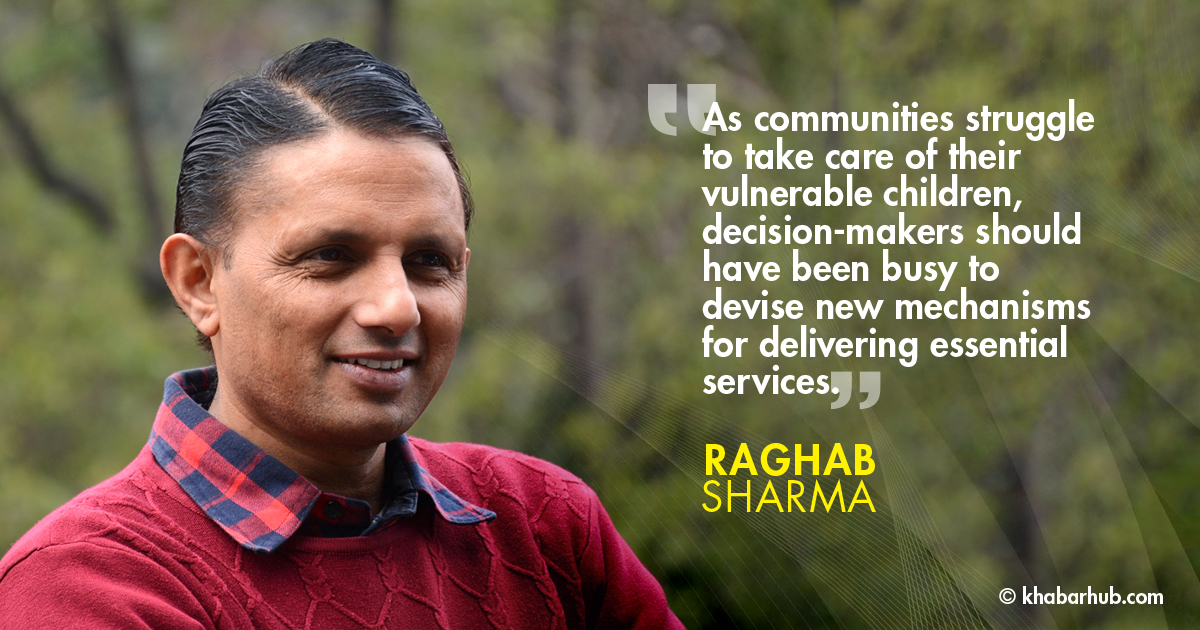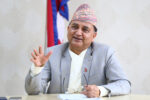The COVID-19 pandemic has put a new spotlight on all sectors, and education is no exception.
Students from privileged backgrounds could find their way past closed college and school doors to alternative learning opportunities.
However, students from disadvantaged backgrounds have been deprived of often learning exposing the several inadequacies and inequities in the country’s education system – from the supportive environments to access to the internet and computers needed for online education, to the misalignment between needs and resources.
It can be said that the biggest damage it has caused in developing countries and the countries under autocratic rulers is on education.
When debate on the developed pops out, ‘developed’ in all sense, countries have come on the need to reflect on the development approaches they have adopted and lapses in the system, the least developed countries, and the countries under autocratic system and rulers are seen concerned about their chair or the retention on the post, especially in the case of a country like Nepal.
However, unfortunately enough, the government seems least concerned about this issue.
Peeking at the government response on pandemic control makes one regret over their judgment on choosing their representatives.
The government after three months of pandemic outbreak opened tender for the procurement of medical supplies made a controversial deal with Omni Group.
The Education Ministry, when asked about their plans to tackle the crisis induced by the pandemic, responded it was time for the schools to remain closed so the students would be on holiday.
Consider what the Ministry responded: “We have asked all schools to finish the exam at the earliest, soon they will finish it and the schools and the children will be on holiday, so there is nothing to panic much about it.”
The Ministry’s response, which seems idiosyncratic, arrogant and irresponsible, is the stereotyped answer of most of the bureaucrats and politicians in Nepal.
A serious ponder on his remark makes one realize why the education sector is suffering so much in Nepal.
His answer is idiosyncratic in the sense that it does not sound like the rational answer that should have come from the spokesperson at the Ministry.
Firstly, the government spokesperson lacked the common sense that the pandemic would impact all levels beginning from beginners to university students.
March is the last month of academic sessions only at basic schools, senior grades like secondary level and university classes have a different academic calendar.
Secondly, he, like other government officials and politicians, was too shortsighted to think that the pandemic that had already put Wuhan, the Chinese town from where the coronavirus pandemic first erupted, in lockdown for nearly 3 months by then would be over in Nepal in few weeks.
As a result, the national level examination of Grade 10, also known as Secondary Education Examination(SEE) was postponed indefinitely and no concrete measures were adopted to change the modality of teaching-learning in case the pandemic would go beyond control much longer.
The month of March and April was the time of relaxation for the government and the officials as they made no substantive plans to counter pandemic. The government declared lockdown and ‘waited for the pandemic to come under control by itself!’ The Higher Secondary Education Board issued a notice and postponed its exams scheduled for May and so did the Universities who had their scheduled exams at hand.
Months passed, the country which had seen the first coronavirus case on January 13 in a 32-year-old student who had been to China’s Wuhan University of Technology shut down the borders, locked down the country and hoped international communities especially China would come and help the country get rid of the pandemic.
The government after three months of pandemic outbreak opened tender for the procurement of medical supplies made a controversial deal with Omni Group.
But for months, the education authority spent no time in planning for the modality of education.
It took four months for the authority to realize that television and radios could be used for teaching-learning as well, now we have to see how long it takes for it to design the curriculum and the syllabus for such classes.
As a different modality of handling the pandemic, Kathmandu University launched online classes. Some institutional schools run by private sectors resumed the classes as well, but swayed by the so-called ‘student unions’, the government asked them to stop online classes. This irrational decision provoked the guardians against the schools and the guardians started saying they would not pay fees. The schools stopped the classes. In July, the government again asked the schools to resume online classes.
Now, the confused parents are in dilemma on whether to get the children enrolled in the schools and pay the fee the schools demand.
Another considerable thing is access to such online classes. Many students living in remote areas neither have the books and other educational materials nor the devices required to attend online classes. The assumption that everyone has smartphones and all smartphones are compatible with the applications like zoom, Microsoft team, or is wrong as well.
It took four months for the authority to realize that television and radios could be used for teaching-learning as well, now we have to see how long it takes for it to design the curriculum and the syllabus for such classes.
Sadly, neither the Minister nor the bureaucrats under it feel proud of belonging to this Ministry nor they work sincerely so as to come with some concrete visions and impactful plans.
This all shows that the education ministry, like the government itself has been working without specific plans at all.









Comment